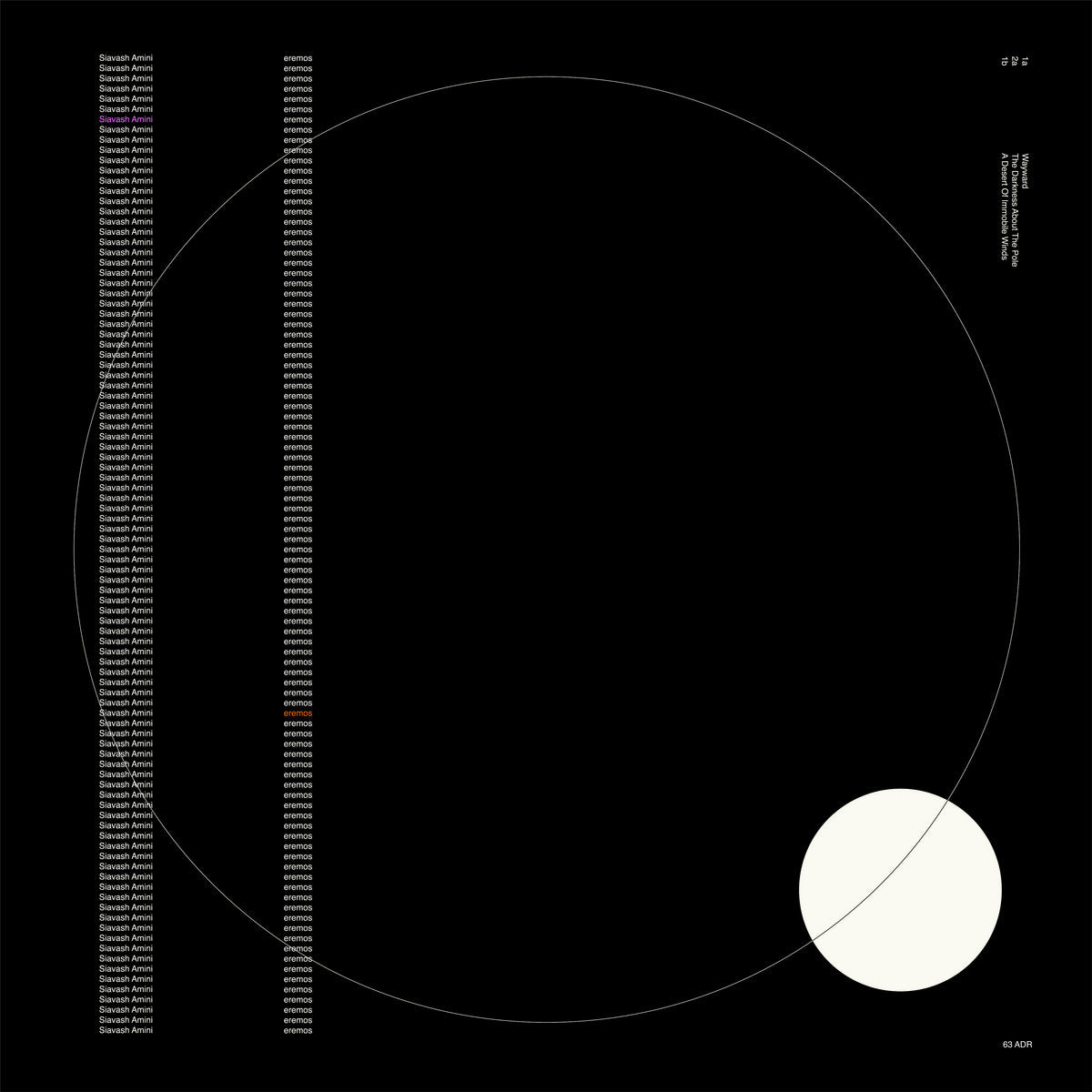Siavash Amini - eremos LP
Siavash Amini - eremos LP
“Eremos” is a Greek adjective meaning uninhabited, desert, or remote, but “the important thing for me is 'uninhabited',” says Iranian sound artist Siavash Amini, explaining the title of his new LP. For over a decade, Amini has crafted tight, detailed sound pieces drawing from electronic music, electroacoustic experimentation, and classical music traditions, working in solo and group configurations – see collaborations with Iranian duo 9T Antiope, American scholar and poet Eugene Thacker, French ambient composer Saåad, and more. On eremos, Amini considers two passages from Iranian philosopher-poet Ibn Sina’s Hayy ibn Yaqdhan, a mystical Romance on which the more widely-read Hayy ibn Yaqdhan by Ibn Tufayl is based – the first passage musing on space, desolation, life, and non-life; the second with light, darkness, precipice, and transcendence. Across four longform compositions, he interprets those selfsame themes with patience, curiosity, and necessity.
There’s a rootlessness to Amini’s sound and toolkit – unplaceable but nomadic – outside chronology’s nagging sway. Take lead single “The Darkness About the Pole,” which opens with a sustaining coarse hiss – is it sand through the hourglass? Needle tracing a record’s center label? Wind? Heavier components enter as sharply-outlined fog. Theirs is a slow arid dance from nowhere traveling somewhere, moving through ghost towns, quarantined museums, and desert plains — not a denizen in sight.
Though the music is instrumental, Amini enlisted a collaborator and world class desolation expert for additional, worded context:
torrential sandstorms
and nocturnal rains
cleave an abyss in two -
a distant muted arc
of small melodies -
locusts in a cosmic disarray
mark dead time
— Eugene Thacker


